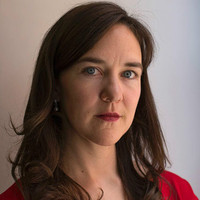Mark Bowden is a journalist and the author of 13 books, including Black Hawk Down and his latest, Hue 1968: A Turning Point of the American War in Vietnam.
“My goal is never to condemn someone that I’m writing about. It’s always to understand them. And that, to me, is far more interesting than passing judgment on them. I want you to read about Che Thi Mung, an 18-year-old village girl, who was selling hats on corners in Hue in the daytime and going home and sharpening spikes to go into booby traps to try and kill American soldiers and ARVN soldiers in the evening. I want to understand why she would do that, why she would be so motivated to do that. And I think I did.”
Thanks to MailChimp, LeVar Burton Reads, Babbel, and HelloFresh for sponsoring this week's episode.
















